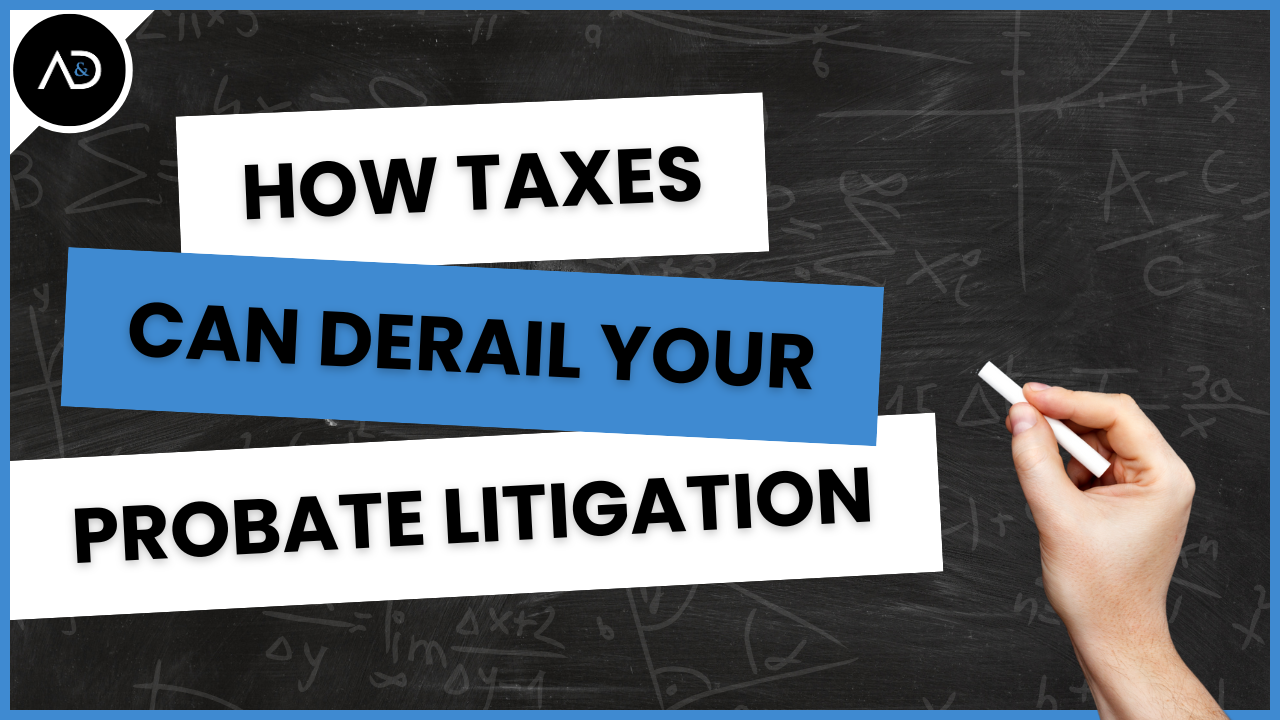
If you settle or otherwise resolve a trust or will litigation case, the amount you receive may be drastically reduced by taxes. There are a number of taxes that apply to trust and will assets, such as: Federal estate tax Income tax Real property tax Business personal property tax A host of other taxes. All […]









